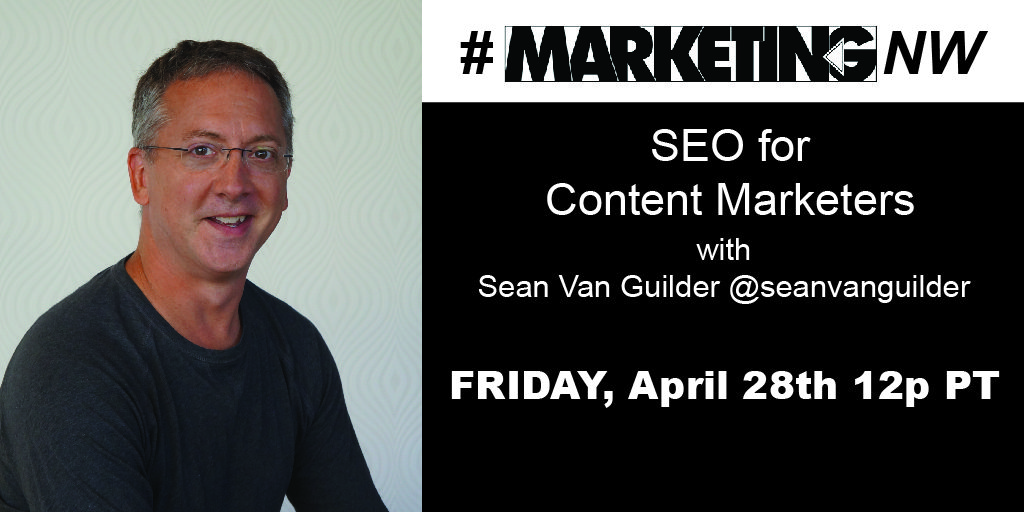By Ryleigh Hazen
 Our #MarketingNW tweetchat features local digital marketing experts interacting with the global marketing community. This April we focused on the intersection between SEO and content marketing for voice search. This blog post sums up the importance of voice search for content marketers, things to remember when writing content, and how to optimize for home assistant. We have included a Storify so you can check out the complete tweetchat for yourself!
Our #MarketingNW tweetchat features local digital marketing experts interacting with the global marketing community. This April we focused on the intersection between SEO and content marketing for voice search. This blog post sums up the importance of voice search for content marketers, things to remember when writing content, and how to optimize for home assistant. We have included a Storify so you can check out the complete tweetchat for yourself!
Local Expert: Sean Van Guilder, Director of SEO at Point It Digital Marketing
Sean Van Guilder has been helping businesses get found on the internet for over 20 years. He has a 10,000 foot view of digital marketing that helps shed light on SEO as a business driver. Sean has worn almost every digital marketing hat out there and brings strategies and tactics that have knocked the socks off of companies such as Microsoft, MSN and WONGDOODY, to name a few. Currently, Sean is leading the SEO Practice for premier digital marketing agency, Point It, in Seattle. Sean is a self-taught digital marketer and loves every minute of it. When he’s not in front of a computer, he’s teasing his co-workers, playing sports, hanging with his kids, making music and collecting HO scale trains.
This tweetchat was focused on the intersection between SEO and content marketing for voice search. We asked the following questions and got some great responses.
Why is voice search important for content marketers to know about?
Voice search has become a major part of searching. Phones and home assistants incorporate more and more features of voice search. In fact, mobile searches recently replaced desktop searches as the most used form of search. Personal assistants have changed the game! Content needs to be written for who, what, where, when, why, how queries in order to fit with the natural language. Searchers use this natural language to have a conversational interaction.
“The days of keyword stuffing and writing for engines are over. Now it’s about content for conversational search queries.” – Sean Van Guilder, Director of SEO
What are the most important things for content marketers to remember to make their content voice search friendly?
Searchers will be looking for specific answers and they want them in a format that suites their needs. In order to provide the best answers content marketers need to know what they are asking, not what they think they are asking. Content should be conversational. Voice searches use natural language, the answers need to reflect that. Clear and concise answers give the searcher what they want right away. Ease of use for the searcher is key in getting content to the masses.
How do we optimize for voice search for home assistants? What kind of results can you expect to get?
In order to get the best results make sure your organization is highly ranked on Google and Bing. Google Home uses Google and Alexa uses Bing. Find out what people ask their home assistants. Talking to actual customers provides the most valuable information. Create content with that information in mind.
“Be mobile and local optimized. Implement Schema markup, claim Google My Business and Bing Places for Business”
– Sean Van Guilder, Director of SEO
You should see an increase in organic traffic and direct traffic mainly on mobile, but desktop as well. More conversations lead to more consumed content. More people will land on your website and your existing audience will be happy with your content as well.
Wrap Up
SEO is evolving from keywords to natural language inquires. Make sure your organization is staying up to date by taking this into account. Create content that answers questions in a natural way.
“MarketingNW Tweetchats take place from noon-1 p.m. the last Friday of the month. If you think you have what it take to be a guest expert, please email melissavailcoffman@gmail.com.














